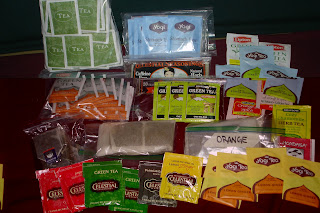Farewell Josephine
My good friend Josephine (who was the school office attendant) left Kuluva a couple of weeks ago. :( When I first moved to site, Josephine was the one who helped me clean my house and get settled. She also showed me around the hospital compound and introduced me to many people who live here. Whenever I had questions about the school, Lugbara, the community, or anything, I would ask Josephine. She was very easy to talk to and always made me feel welcome.
Last year she took a typing course and got certified as a secretary, but could only find work as an office attendant (cleaning/maintaining the school, preparing tea time/lunch, and running errands for Sister Anne). And a couple of weeks ago Josephine’s brother found her a secretary job in Kampala. It’s a wonderful opportunity for her and I’m happy she’s found a good job. But when she left for the interview, I thought she would come back and work here for a couple more weeks. We got word the other day that she’s not coming back. I’m totally bummed.
Maybe I will meet up with her in Kampala sometime.
Dam Power
I just figured that all of these power outages and lack of running water are because of the dry season (we just had a 4-day blackout and I haven’t had water in 2 months) – it turns out that Kuluva’s dam stopped working and needs repair. But it was built by a German NGO, which means all of the parts/instructions are in German – and the Ugandans can’t read it. So they had to call in a German engineer. Someone came to look at it and, of course, had to order some parts from Germany to fix it. Who knows when it will be fixed . . . In the meantime, we’ve been hooked up to Wenreco, the power company for Arua. But even they do rolling blackouts. Ugh.
Care Packages
Care packages are awesome. It’s like Christmas every time I get one. :) I decided to tally up what I have (in case you’re wondering what I need or don’t need):
- 22 different kinds of herbal tea (estimate at least 10 teabags of each flavor)
- 33 packets of Emergen-C
- 45 packets of Crystal Light drink mix
- 8 packs of pocket Kleenex
- 6 packs of Wet Wipes, 3 bottles of hand sanitizer (plus various kinds of facial cleansing wipes)
- 6 packs of gum
- Bug repellant – 2 bottles of spray, 2 bug bands, 52 packets of OFF! wipes (another PCV received the OFF! wipes in a care package and didn’t want them, so she gave them to me)
Eat Frequently:
Instant oatmeal packets
Trail mix
Granola bars
Candy bars
Dried fruit
Need:
Protein bars (Clif bars, Balance bars, . . . any kind really)
Boil-in-a-bag brown rice
I’m starting to feel the serious lack of protein in my diet. I cook eggs occasionally and I try to eat lunch (beans) at school at least twice week. But I really miss tofu, Boca burgers, chickpeas, seitan, etc. I might consider eating the fish here, if only it wasn’t staring back at me from the plate. (They don’t filet the fish here – you get the whole thing: head, bones, and tail.)


